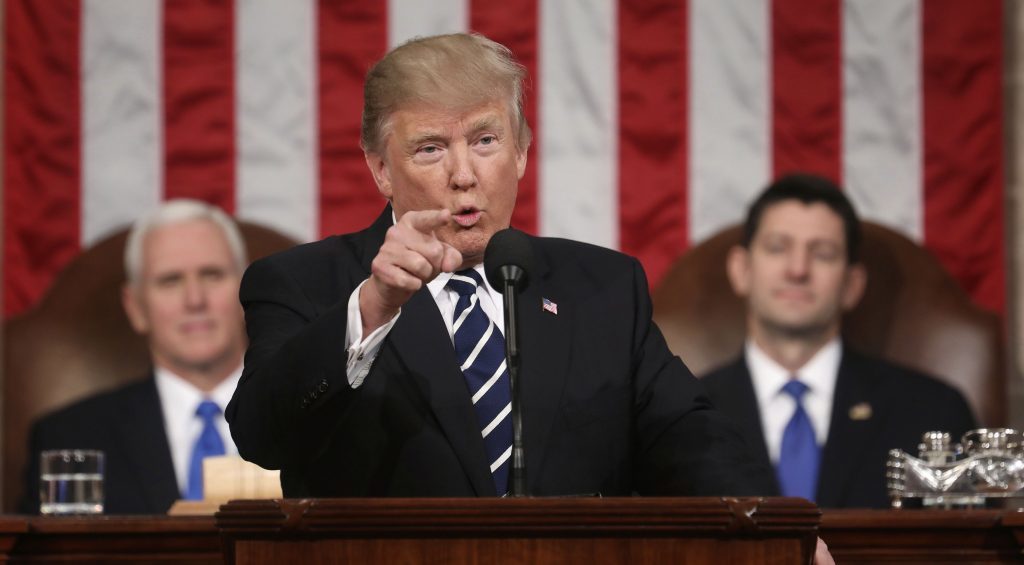
The Trump administration’s plan to slash corporate tax rates could free up more than $10 billion a year for U.S. oil explorers, opening new opportunities to boost drilling at a time of uncertainty in the marketplace.
Crude prices in New York have fallen 10 percent since the end of 2016 as added drilling in America’s shale fields offset an OPEC-led drive to raise prices by cutting production. The U.S. push has spurred concern that another price rout could be just around the corner, following a two-year decline that saw prices fall as low as $26.05 a barrel in February 2016.
Republicans led by President Donald Trump have said they want to cut the top corporate rate to 15 or 20 percent, from 35 percent now. That could mean more than $10 billion in savings for oil producers that are one of the country’s most-heavily taxed industries, according to Bloomberg Intelligence research. The final number will hinge on whether drillers surrender other tax breaks in exchange, said Vincent Piazza, a senior analyst at BI.
“In theory,” explorers would divert tax savings to more domestic drilling, Piazza said in a telephone interview “But nothing is ever one-for-one.”
West Texas Intermediate crude fell 0.2 percent on Monday to $48.47 after it hit a high of $55.24 on Jan. 3.
The number of rigs drilling U.S. fields for crude almost doubled to 617 since the end of May, when the full impact of the oil-market collapse shrank the fleet to a 6 1/2-year low, according to Baker Hughes Inc. The oil rig count has advanced in 18 of the past 19 weeks as explorers coped with reduced cash flows by finding cheaper ways to pump each barrel from the ground.
U.S. drillers lifted crude production more than 3 percent since the end of 2016 to 9.088 million barrels a day as of March 3, according to the Energy Department in Washington.
‘Stiff Challenges’
It’s not clear when a tax cut plan might be finalized by the U.S. Congress and signed into law by the president. “A reform bill faces stiff challenges, and would likely come with tradeoffs such as fewer tax breaks,” the Bloomberg Intelligence report said.
Still, the discussion comes as the future of the global industry is under debate. At CERAWeek by IHS Markit, the largest annual gathering of industry leaders, some top executives warned against overindulgence by U.S. drillers.
Harold Hamm, the billionaire shale oilman, said the U.S. industry could “kill” the oil market if it embarks into another spending binge.
U.S. production “could go pretty high,” Hamm, the chairman and CEO of Continental Resources Inc., said at the meeting. “But it’s going to have to be done in a measured way, or else we kill the market.”
Saudi Arabia’s oil minister, Khalid Al-Falih, told the conference that global oil stockpiles haven’t drained as quickly as expected, opening the door for an extension to OPEC production cuts that were originally due to expire at mid year.
Without such an extension, the price of oil could drop to $40 a barrel, said Scott Sheffield, chairman of Irving-based Pioneer Natural Resources Co.